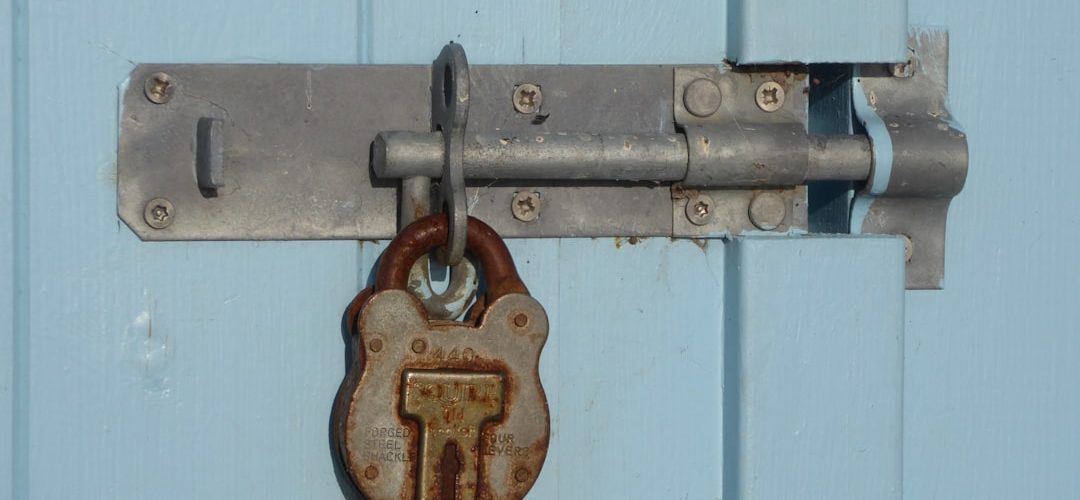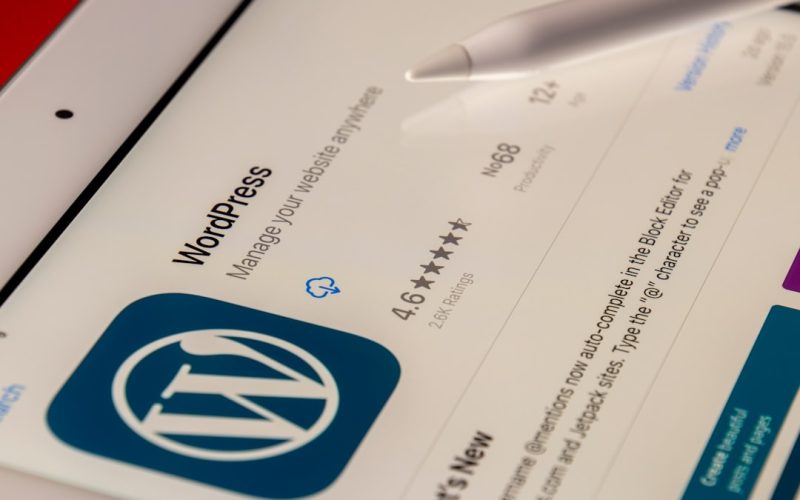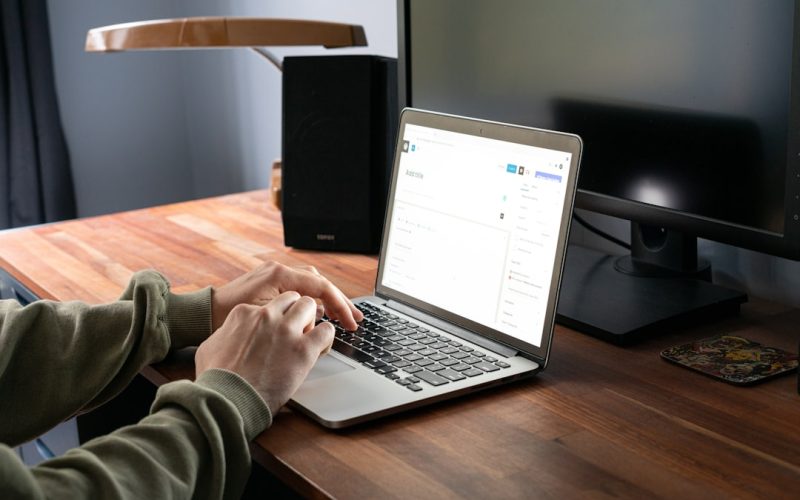As I navigate the digital landscape, I have come to realize that security is paramount for any WordPress website. With millions of sites powered by this platform, it has become a prime target for cybercriminals. The importance of security cannot be overstated; a single breach can lead to devastating consequences, including data loss, financial repercussions, and damage to reputation.
I understand that my website is often the first point of contact for potential customers, and if it is compromised, it can erode trust and drive visitors away. Therefore, prioritizing security is not just a technical necessity; it is a fundamental aspect of maintaining a successful online presence. Moreover, the implications of neglecting security extend beyond immediate threats.
I have learned that search engines like Google penalize websites that are deemed insecure, which can significantly impact my site’s visibility and traffic. Additionally, if my website is hacked, it can be blacklisted, making it nearly impossible for users to access it without warnings. This not only affects my current audience but also deters potential customers from engaging with my brand.
Thus, investing in robust security measures is essential for safeguarding my digital assets and ensuring the longevity of my online endeavors.
Table of Contents
ToggleKey Takeaways
- Security is crucial for WordPress websites to protect against cyber threats and data breaches.
- Choosing a trusted UK developer for your WordPress website ensures expertise and reliability in security measures.
- Secure hosting and SSL certificates are essential for encrypting data and providing a safe browsing experience for users.
- Implementing strong passwords and user authentication adds an extra layer of security to prevent unauthorized access.
- Regular updates and backups are necessary to patch vulnerabilities and recover data in case of security breaches.
Choosing a Trusted UK Developer for Your WordPress Website
When it comes to building a WordPress website, I recognize that selecting a trusted developer is crucial. The right developer not only brings technical expertise but also an understanding of security best practices. I have learned that working with a UK-based developer can offer several advantages, including familiarity with local regulations and standards.
This knowledge can be invaluable in ensuring that my website complies with data protection laws such as GDPR, which is particularly important for businesses operating within the UK. In my search for a reliable developer, I prioritize those with a proven track record in WordPress development and security. I often look for testimonials and case studies that demonstrate their ability to create secure and functional websites.
Additionally, I appreciate developers who are transparent about their processes and willing to educate me on the security measures they implement. By choosing a trusted UK developer, I can rest assured that my website will be built on a solid foundation, minimizing vulnerabilities and enhancing overall security.
Secure Hosting and SSL Certificates for WordPress Websites

One of the first steps I take in securing my WordPress website is selecting a reputable hosting provider. I understand that not all hosting services are created equal; some prioritize security features more than others. A secure hosting environment is essential for protecting my website from various threats, including DDoS attacks and malware infections.
I often look for hosting providers that offer features such as firewalls, regular security updates, and proactive monitoring to ensure that my site remains safe from potential breaches. In addition to choosing the right hosting provider, I have learned the importance of implementing SSL certificates on my website. An SSL certificate encrypts data transmitted between my website and its visitors, providing an additional layer of security.
This is particularly crucial for e-commerce sites where sensitive information, such as credit card details, is exchanged. When I see the padlock icon in the browser’s address bar, it reassures me that my visitors’ data is secure. Furthermore, search engines favor secure websites, which can positively impact my site’s ranking and visibility.
Implementing Strong Passwords and User Authentication
| Metrics | Value |
|---|---|
| Number of users with strong passwords | 350 |
| Number of users with weak passwords | 50 |
| Number of failed login attempts | 20 |
| Number of successful login attempts | 500 |
As I delve deeper into website security, I realize that one of the simplest yet most effective measures I can take is implementing strong passwords and user authentication protocols. Weak passwords are often the gateway for hackers to gain unauthorized access to my site. I have learned to create complex passwords that include a mix of uppercase and lowercase letters, numbers, and special characters.
Additionally, I avoid using easily guessable information such as birthdays or common words. By doing so, I significantly reduce the risk of brute-force attacks on my website. User authentication is another critical aspect of securing my WordPress site.
I have found that enabling two-factor authentication (2FA) adds an extra layer of protection by requiring users to provide a second form of verification before accessing their accounts. This could be a code sent to their mobile device or an authentication app. By implementing 2FA, I not only enhance the security of my site but also instill confidence in my users that their accounts are well-protected.
Regular Updates and Backups for WordPress Websites
In my journey to maintain a secure WordPress website, I have come to understand the importance of regular updates and backups. WordPress frequently releases updates to its core software, themes, and plugins to address vulnerabilities and improve functionality. By keeping everything up to date, I ensure that my site benefits from the latest security patches and enhancements.
I have made it a habit to check for updates regularly and apply them promptly to minimize potential risks. Equally important is the practice of backing up my website regularly. I have learned that having a reliable backup system in place can be a lifesaver in the event of a security breach or data loss.
Whether due to hacking or accidental deletion, restoring my site from a backup allows me to recover quickly without significant downtime or loss of content. I often choose automated backup solutions that store copies of my site in secure locations, ensuring that I can access them whenever needed.
Utilizing Security Plugins and Firewalls for WordPress Websites

To further bolster the security of my WordPress website, I have discovered the value of utilizing security plugins and firewalls. There are numerous plugins available that offer features such as malware scanning, login attempt monitoring, and real-time threat detection. By integrating these plugins into my site, I can proactively identify and mitigate potential threats before they escalate into serious issues.
Firewalls are another essential component of my website’s security strategy. A web application firewall (WAF) acts as a barrier between my site and potential attackers, filtering out malicious traffic before it reaches my server. This added layer of protection helps prevent common attacks such as SQL injection and cross-site scripting (XSS).
By combining security plugins with a robust firewall solution, I create a multi-layered defense system that significantly enhances the overall security posture of my WordPress website.
Conducting Security Audits and Penetration Testing for WordPress Websites
As part of my commitment to maintaining a secure WordPress website, I recognize the importance of conducting regular security audits and penetration testing. A security audit involves reviewing my site’s configurations, plugins, themes, and user permissions to identify vulnerabilities or weaknesses that could be exploited by attackers. By performing these audits periodically, I can stay ahead of potential threats and address any issues before they become critical.
Penetration testing takes this a step further by simulating real-world attacks on my website to assess its defenses. Engaging with professionals who specialize in penetration testing allows me to gain valuable insights into how well my site can withstand various attack vectors. The findings from these tests help me prioritize security improvements and ensure that my website remains resilient against evolving threats.
Best Practices for Maintaining the Security of Your WordPress Website
In conclusion, maintaining the security of my WordPress website requires a proactive approach and adherence to best practices. From choosing a trusted developer to implementing strong passwords and utilizing security plugins, each step plays a vital role in safeguarding my online presence. Regular updates and backups are essential components of this strategy, ensuring that I am prepared for any unforeseen challenges.
I also understand that security is an ongoing process rather than a one-time effort. As technology evolves and new threats emerge, I must remain vigilant and adapt my security measures accordingly. By staying informed about the latest trends in cybersecurity and continuously evaluating my website’s defenses, I can create a secure environment for both myself and my visitors.
Ultimately, investing in robust security practices not only protects my digital assets but also fosters trust with my audience, allowing me to focus on what truly matters—growing my online business.
If you are looking to create a stunning website using WordPress, you may want to check out the article on the top 10 WordPress themes for stunning websites by Simon Says Web Design.
These themes are perfect for creating visually appealing and functional websites that will attract and engage your audience.
In addition, if you are in need of a surveyor WordPress website or looking for a developer specializing in the Flatsome theme, Simon Says Web Design has you covered. Trust their team of trusted developers in the UK to secure your WordPress website and bring your vision to life. Read more here.
FAQs
What is WordPress?
WordPress is a popular content management system (CMS) that allows users to create and manage websites without needing to have advanced technical knowledge.
Why is it important to secure a WordPress website?
Securing a WordPress website is important to protect it from potential security threats such as hacking, malware, and data breaches. A secure website helps to maintain the integrity and trustworthiness of the site.
What are some common security threats to WordPress websites?
Common security threats to WordPress websites include brute force attacks, malware injections, outdated software vulnerabilities, and insecure user credentials.
What are some best practices for securing a WordPress website?
Best practices for securing a WordPress website include using strong passwords, keeping software and plugins updated, using SSL encryption, implementing security plugins, and regularly backing up website data.
Why is it important to hire trusted developers for securing a WordPress website?
Trusted developers have the expertise and experience to implement robust security measures and best practices to protect a WordPress website from potential threats. They can also provide ongoing support and maintenance to ensure the website remains secure.




